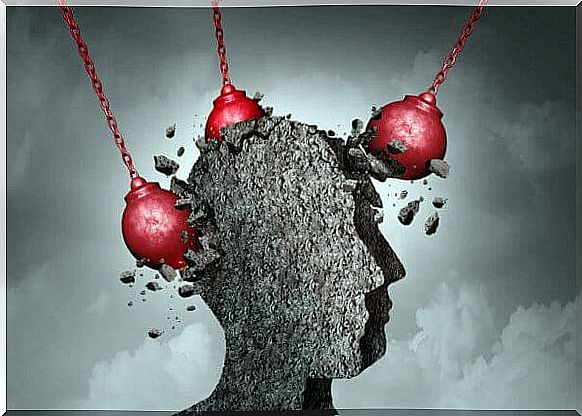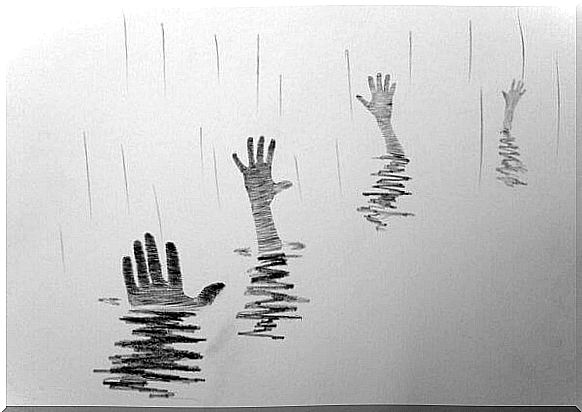3 Misconceptions About Treating Depression

There are quite a few misconceptions out there about treating depression. It used to be that wrong ideas only spread with the help of rumors. But now misunderstandings even come from seemingly accurate online expert sources.
The interests of the pharmaceutical industry are partly responsible. They spread ideas by relying on society’s ignorance. People take the ideas as truth, without questioning the message of certain government figures.
In this context , incorrect ideas and arguments without a scientific basis are not harmless. Because of these misconceptions, people do not seek psychological treatment.
It also creates a situation where doctors and psychiatrists do not offer treatment. They do not refer patients to skilled and trained psychologists.
Let’s look at the three most important misconceptions about treating depression.

3 Misconceptions About Treating Depression
1. Psychotherapy cannot cure depression
The website DMedicine, part of the newspaper El Mundo, says (the quote has been translated), “there are no studies that show that psychological techniques can cure severe depression. […] In severe depression, pharmacological treatment is the only one that has been shown to be effective ”.
It is interesting that with a little searching we find many serious, thorough studies that are contrary to the previous statement.
Besides, we are not even talking about individual studies. We are talking about meta-analyzes. These are studies that collect data from various individual studies. They then use statistical techniques to analyze the results of comparing multiple studies.
Meta-analysis on the treatment of depression
These types of studies are very valuable in reaching general conclusions. They include many different subtests instead of just one large sample.
Examples of this type of meta-analysis that demonstrate the effectiveness of psychotherapy for the treatment of depression include that of Cuijpers and Berking et al. (2013) or the more recent study from Johnsen and Friborg (2015).
In the latter, researchers analyzed more than 43 different studies. They found that 57% of patients could be considered “cured” of depression after completing cognitive behavioral therapy.
It is true that cognitive behavioral therapy is the most common. It is also the type of therapy that researchers have studied the most. Therefore, it carries weight in meta-analyzes.
Nevertheless , studies show that other therapies are effective in treating depression. The American Psychology Association (APA) confirms that the following therapies are effective:
- Behavioral Activation Therapy (or behavioral therapy).
- Cognitive behavioral therapy
- Problem solving therapy
- McCullough Cognitive Behavioral Analysis System of Psychotherapy
- Rehms self-control therapy
Treatment of depression: severity
Another common misconception about treating depression is that psychotherapy is only effective for mild or moderate depression. Not for severe depression.
However, Driessen, Cuijpers, Hollon and Dekler (2010) disprove this idea with their analysis of 132 studies. They did not find that the variable of the severity of the depression had an effect on the differences between people receiving treatment and the control group.
In other words, the interaction between the severity of the disease variable and the benefits of psychotherapy was not significantly different from zero.
In light of these results , we can see that the perception of the effectiveness of psychotherapy for the treatment of depression is often wrong. The idea that psychotherapy is useless for major depression is also wrong.
Another related issue is the issue of medication. It can be helpful in cases of major depression. It can help the patient to normalize enough to be able to start treatment in a more balanced state.

2. Psychotherapy is less effective than medication
In Cuijpers, Berking, et al (2013), the study we cited, there is even more data. Their meta-analysis includes at least 20 studies comparing the effectiveness of different treatments for depression. They compare medication to cognitive behavioral therapy.
They found that the difference in efficiency was almost zero (g = 0.03). In addition, the absence of any difference was independent of the evaluation procedure and the medicine used. (The interaction between the factors was not significantly different from zero.)
Now it is important to clarify this point. Studies comparing the results of interpersonal therapy with drug treatment showed a difference. Medical treatments came out a little better than interpersonal therapy.
In any case, we must take these studies with a pinch of salt. There are far fewer studies of interpersonal therapy than cognitive behavioral therapy.
The idea that psychotherapy is less effective than drug therapy is a misconception.
Treating depression takes a long time
To begin with, “long” or “short” depends on where we estimate the middle to be. Currently, the time frame for the previously mentioned therapies is 16-20 hours in 3-4 months. Of course, there are always cases where psychotherapy can take less or more time.
In any case, none of the therapies we have mentioned have taken longer than 6 months. If the patient does not reach his goal during this time, the therapist must reconsider the situation. Not all psychotherapies work for all patients in all conditions.
On the other hand, not all psychologists are created equal. Like surgeons and surgeons, not all psychologists have the same abilities. They do not treat the disturbances from the same angle every time.
However, studies show that the average duration of successful cognitive behavioral therapy is 15 sessions (Cuijpers, Berking, et al.).
But we must separate recidivism from these cases. Relapses can occur for many reasons that are not always related to psychotherapeutic interventions. Among the various causes of a relapse are:
- traumatic events
- maladaptive family dynamics
- habits that lead to isolation and social marginalization
There are more misconceptions about treating depression than we have mentioned here. Psychologists are good at researching and developing effective therapies. But we are not good at explaining them to the public. We still have a lot of work to do on that front.
References
Cuijpers, P, Berking, M. et al. (2013). A meta-analysis of cognitive behavior therapy of adult depression, alone and in comparison with other treatments . Candian Journal of Psychiatry.
Cuijpers, P., Hollon, SD et al. (2013). Does cognitive behavior therapy have an enduring effect that is superior to keeping patients on continuing pharmacotherapy? A meta-analysis . BMU OPen, 3.
Sanz, J. and García-Vera, MP (2017). Ideas equivocadas about depression and its treatment (II) . Papeles del psikólogo. Vol 38.









